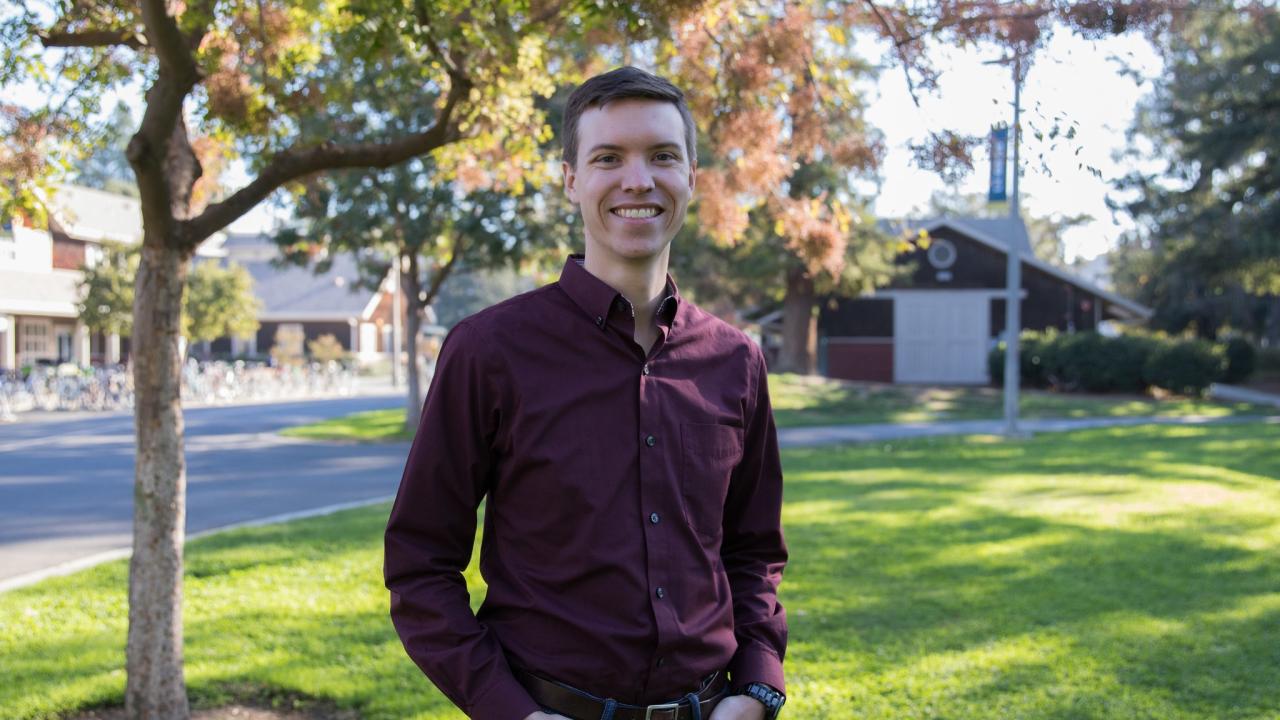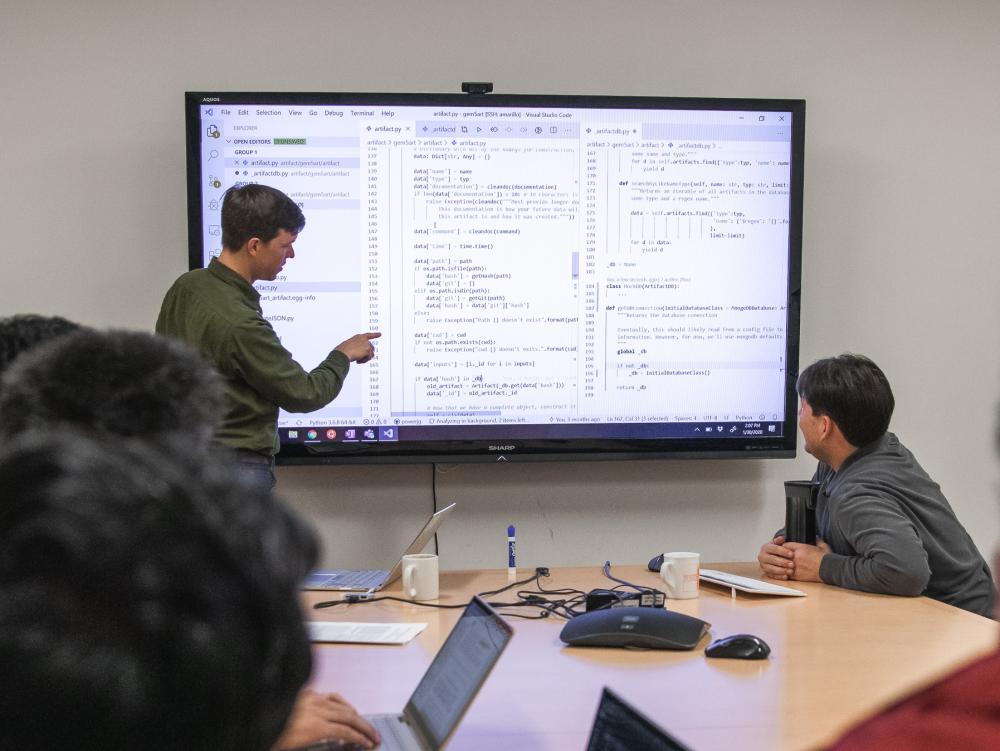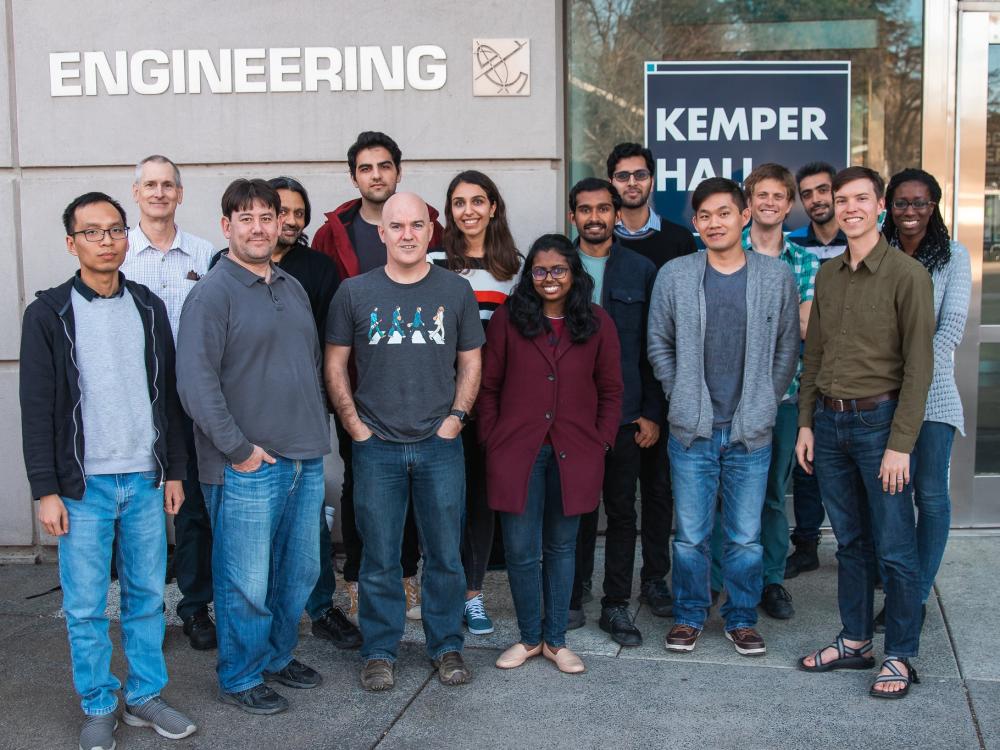
Jason Lowe-Power Receives NSF CAREER Award
Computer Science Assistant Professor Jason Lowe-Power received the prestigious National Science Foundation Faculty Early Career Development (NSF CAREER) Award this year, the agency’s highest honor for young faculty. The award recognizes those with the potential to be leaders in their fields and funds five-year research and education projects that should serve as the foundation for their careers.
Lowe-Power is one of four engineering faculty to receive the honor this year and joins a growing list of 18 UC Davis faculty to receive a CAREER award in the past two years. He feels incredibly grateful to the students and collaborators in the UC Davis Computer Architecture Research Group (DArchR), who helped him prepare his award-winning proposal.
“I’m really proud to receive this award, and I’m thankful for the great students and collaborators that I work with for their support,” he said. “I wouldn’t have been able to do it without them.”
One System, Many Memories
As a computer architect, Lowe-Power designs the structure of a computer the way an architect designs a building. This means choosing the right components and assembling everything so the system works quickly and efficiently to meet power, performance or energy requirements.
In this project, his group seeks to improve heterogeneous memory systems, where multiple types of memory storage devices work together. With the proliferation of new memory technologies and the need for systems that can process massive amounts of data, modern computers may contain several different types of memory—some faster, some higher capacity and some with different properties, such as non-volatile memory. Using these different memories together efficiently will enable increasingly complex computations.

This means studying both hardware and software to find the best ways to place and move data. The group demonstrated a technique for neural networks with heterogeneous memory, but Lowe-Power hopes to generalize the process for other types of programs and accelerate it with new hardware extensions. The goal is to allow software developers to work seamlessly with systems to build more advanced programs for neural networks, natural language models, fluid dynamics simulations and more.
“One of the main goals of the computer architect is to never be seen,” he said. “We’re trying to come up with systems where the compiler or the runtime—in conjunction with some hardware extensions—can make things happen magically in the background, so the programmer doesn’t have to think about it.”
Due to the need for these faster and more complicated programs, heterogeneous memory is an increasingly important problem for industry, so Lowe-Power is excited for the chance to make a real difference.
“This is a pressing problem in computing right now, so I’m excited to be able to dive in,” he said. “I’m excited to see some of these ideas that we’re talking about today show up in products 5-10 years from now.”
Training Student Developers
An essential part of the CAREER award will be bringing cohorts of undergraduate students into the lab each summer. Lowe-Power will introduce them to computer architecture research as they help develop and improve gem5, an open-source computer architecture simulator.

The gem5 simulator is used by companies and universities internationally, so students will have a chance to impact the open-source community while working with developers around the globe. He also thinks it’s a great way to get them thinking about these crucial problems and contributing immediately to the community.
“They get the experience of working on a big piece of software, the unique experience of doing open-source development and [the experience] of working in a distributed development environment,” he said. “Also, they can make contributions to software that’s being used at Google, AMD, Arm and other universities to develop new hardware.”
Lowe-Power received his B.S. at Georgia Tech and his M.S. and Ph.D. at the University of Wisconsin-Madison, all in computer science. He joined UC Davis in 2017.
